How a rape that was ignored angered Indonesia's women
- Published
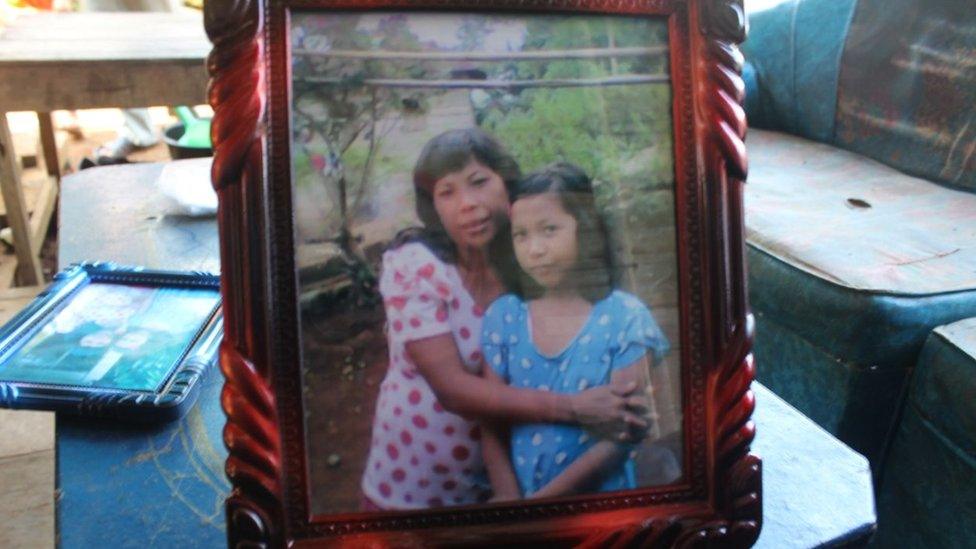
The rape and murder of a 14-year-old girl in Indonesia has sparked a rare and intense debate about sexual violence in the country.
The story of Yuyun, who was allegedly gang-raped by 14 men while on her way back from school, has even led to calls for laws left languishing in parliament to be revived.
But the case was not widely reported by local media until activists spoke out and her story became a social media cause.
On Wednesday, protests were held outside the presidential palace in Jakarta.
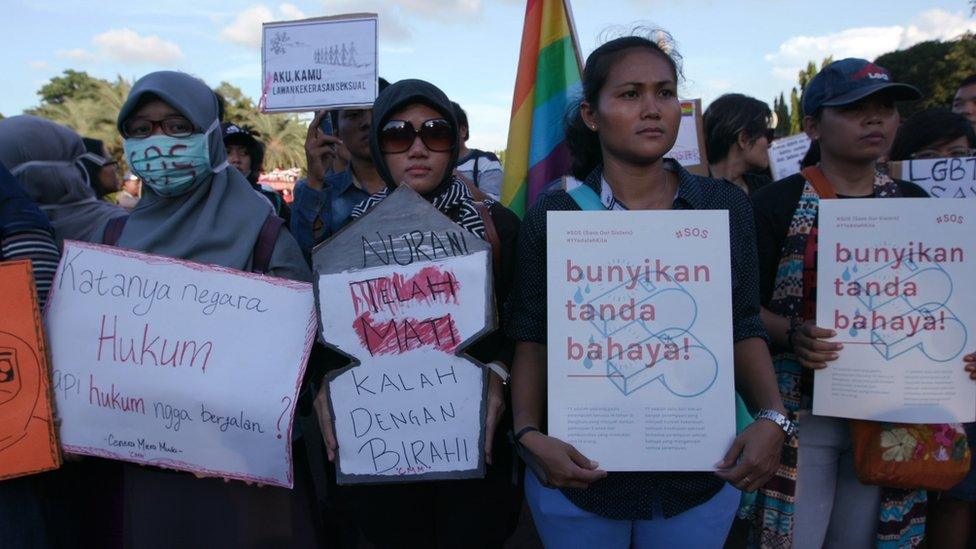
Public outrage has been growing as the incident went viral on social media
Yuyun went missing on 2 April on her way back from school in the village of Kasiah Kasubun in Bengkulu province, in western Indonesia. Her body was found two days later by villagers, bruised and beaten and with her hands tied. Twelve suspects have been arrested, seven under 18 years of age.

Her body was found in undergrowth close to the village
"We don't own very much, our children are our most precious possessions," Yana, Yuyun's mother told BBC Indonesian. "They are the ones I have been struggling for my whole life."
Yuyun was a top student who wanted to become a teacher, her mother said - she was the family's hope.
Two weeks after the arrests, activist and independent musician Kartika Jahja in Jakarta read about the case online. She told BBC Indonesian that her subsequent anger was not just down to the child's tragic fate but because the story had simply been ignored.
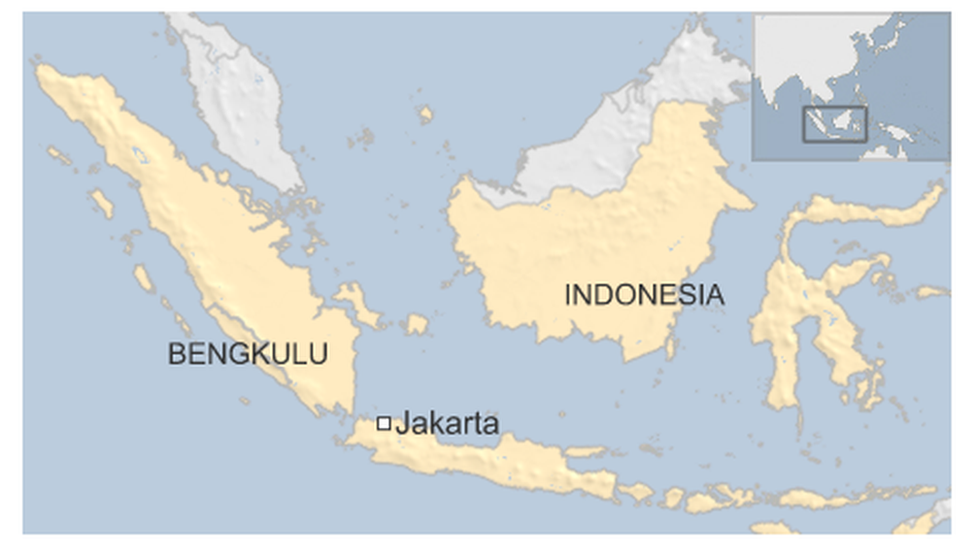
Kartika Jahja's community, Kolektif Betina, initiated a campaign on Twitter with the hashtag #Nyala untuk Yuyun - Candles for Yuyun. It spread quickly with more than 23,000 retweets - along with similar hashtags that came afterwards such as #YYadalahKita (YY is us).
That is when the national media picked up the story.
"I hope this movement won't stop in social media. We need to fight sexual violence offline and do everything we can, using the skills we have. Sexual violence is an emergency issue in Indonesia, but most people don't care about it. We need to be together. If not, we won't find the way out," Kartika Jahja said.
The online discussion was a rare vent for the frustrations of women who suddenly found themselves talking openly about victim-blaming, male domination, and Indonesia's patriarchal system.
"Rape is not about lust. It's about abuse of power. We can't let it happen," said Nisa Rizkiah on Twitter. Another said, "As long as man and woman haven't been taught about respect, rape case will happen again as a way to control [woman's] body."
"Teach boys not to rape; don't teach girls how to dress," said another user.
The case has led to calls for the government to act now to do more to stop sexual violence against women in Indonesia. The Alliance for Community Care of Victims of Sexual Violence has asked for lawmakers to urgently pass the Elimination of Sexual Violence Act.
Back in Yuyun's village, her death has left the community fearful, says a neighbour, Neti.
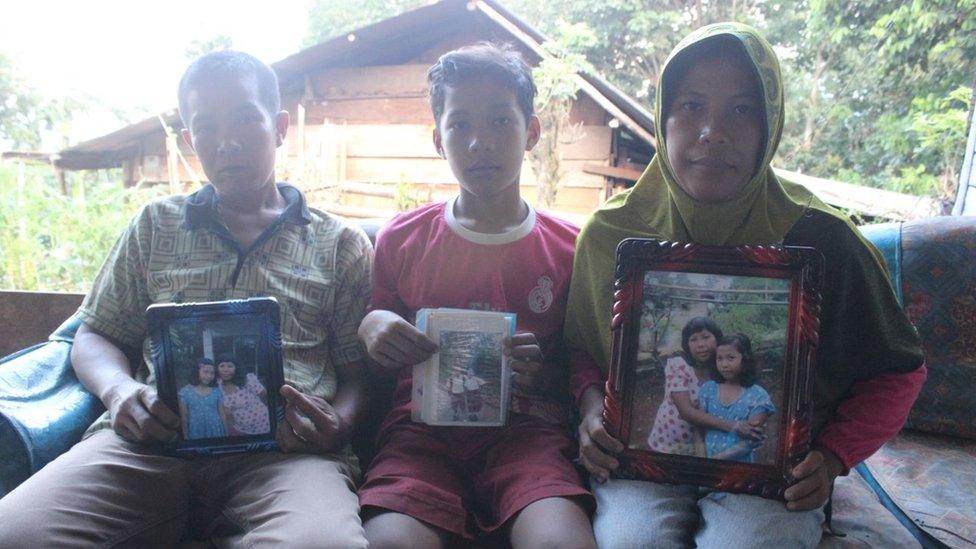
Yuyun's family say they are struggling to cope without her
"Now children and particularly girls are taking motorbike taxis home. Even if it costs money, they will do it because they are scared that this will happen again."
There is an intense stigma attached to victims of sexual assault in Indonesia, says Sophia Hage, the campaign director for Lentera, a group of sexual violence survivors.
"People blame the victim and the victim's family and friends rather than focusing on the punishment for the rapist."
A a result, many victims do not report their cases to the police. This is the case in many countries around the world, and in India the debate changed after the gang rape and murder of a student on a bus in Delhi in 2012.
Many activists hope that this could be Indonesia's moment to take the debate about sexual violence against women nationwide, to the government, and to shame the country into action.
- Published16 January 2013
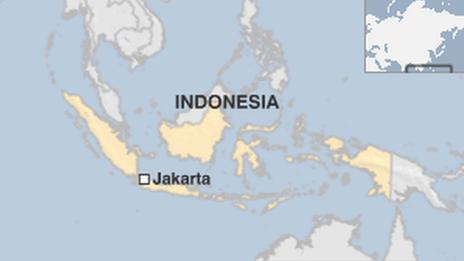
- Published1 February 2016
